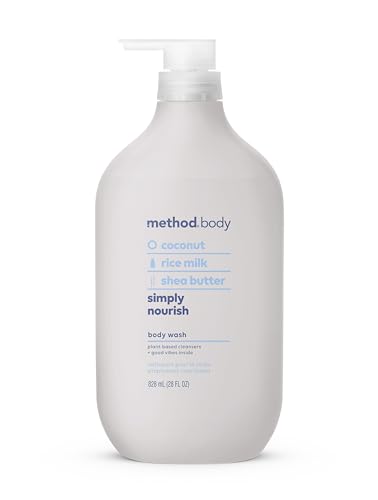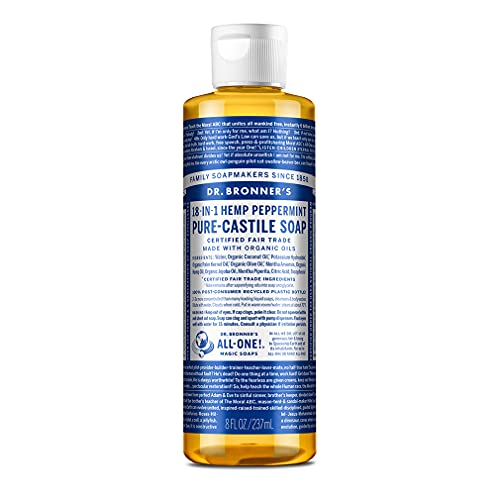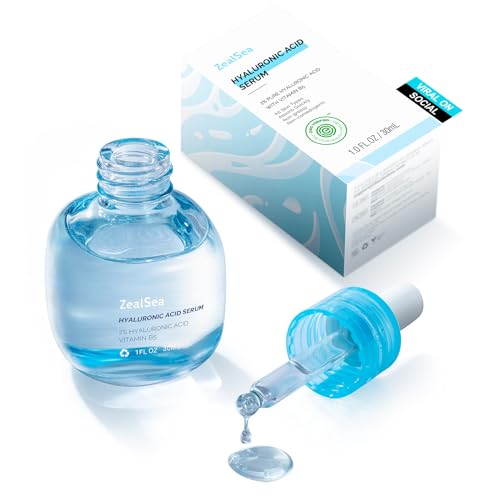
Wild & Organic Hyaluronic Acid Gummies - Joint, Skin & Nail Support, Vegan, 60 Chews


Lactic Acid, L
High RiskLactic acid is an organic acid commonly used in cosmetics and skincare products as an exfoliant and pH regulator. It helps in improving skin texture and hydration by promoting the shedding of dead skin cells and enhancing moisture retention.
Sustai Insights
Lactic acid offers functional benefits as an effective exfoliant and moisturizer, contributing to improved skin appearance. However, it poses potential risks, including skin irritation and enhanced absorption, which may lead to adverse effects. Regulatory bodies have noted use restrictions due to these concerns. Overall, the ingredient is considered high risk, necessitating cautious usage, particularly for sensitive skin. Alternatives like glycolic acid may provide similar benefits with potentially lower irritation.
Citric Acid
Medium RiskCitric acid is an alpha hydroxy acid used in personal care products primarily for its role as a pH adjuster and natural preservative. It occurs naturally in citrus fruits and is commonly utilized in various formulations for its chelating properties and mild exfoliation benefits.
Sustai Insights
Citric acid offers functional benefits as an effective preservative and pH stabilizer, contributing to product longevity and stability. It is biodegradable and derived from renewable sources. Health risks are low, with minimal concerns regarding carcinogenicity, allergies, and reproductive toxicity. However, moderate use restrictions exist due to potential irritation at high concentrations. Environmental risks are limited, as citric acid is not known to accumulate in ecosystems. Regulatory agencies have no significant advisories against its use. Overall, it is assessed as a medium-risk ingredient, with safe usage practices recommended and alternatives available.
Hyaluronic Acid
Low RiskHyaluronic acid is a natural polysaccharide found in connective tissues, skin, and cartilage, primarily serving as a moisture-retaining agent in cosmetic products. Its primary function is to provide hydration and improve skin elasticity, making it a common ingredient in moisturizers and serums.
Sustai Insights
Hyaluronic acid offers significant functional benefits, such as effective hydration and skin plumping, while being biodegradable and generally recognized as safe by regulatory bodies. Health risks are minimal, with low concerns regarding carcinogenicity, allergies, or reproductive toxicity. Environmental risks are also low, as it is not considered a pollutant or bioaccumulative. Regulatory bodies have not issued major advisories against its use, resulting in an overall low-risk assessment. For safe usage, it is recommended to apply in appropriate concentrations. Alternatives include glycerin or aloe vera, which also provide hydration.
Ascorbic Acid (Vitamin C)
Low RiskAscorbic acid (Vitamin C) is a naturally occurring antioxidant essential for various biological functions, including collagen synthesis and immune response. It is commonly used in cosmetic and food products for its preservative properties and ability to enhance skin brightness.
Sustai Insights
Ascorbic acid provides functional benefits as an effective antioxidant and preservative, contributing to skin health and product stability. It is generally recognized as safe with low health risks, including minimal concerns for carcinogenicity and allergies. Environmentally, it poses low risks, as it is biodegradable and does not bioaccumulate. Regulatory bodies like the FDA have not imposed significant restrictions on its use. Overall, the ingredient presents a low risk, with safe usage practices ensuring consumer safety, and alternatives such as natural extracts exist for those seeking different formulations.
Sodium Citrate
Low RiskSodium citrate is used in cosmetic formulations primarily as a buffering agent, helping to stabilize pH levels. It is derived from citric acid and is commonly found in various personal care products to enhance their efficacy and stability.
Sustai Insights
Sodium citrate offers functional benefits such as effective pH regulation and acts as a mild preservative. It is generally recognized as safe with low risks for cancer, allergies, and reproductive toxicity. Environmental concerns are minimal, with no significant pollutant potential or bioaccumulation. Regulatory bodies like the FDA and COSMOS have no major restrictions on its use. Overall, sodium citrate presents a low risk, making it a viable ingredient in cosmetic formulations. Safe usage practices should be followed, and alternatives are not typically necessary.
Vaccinium Angustifolium (Blueberry) Fruit
Low RiskVaccinium angustifolium (blueberry) fruit is a natural ingredient commonly used for its antioxidant properties and nutritional benefits. It is often incorporated in food products and cosmetics for its potential to enhance skin health and provide flavor.
Sustai Insights
Vaccinium angustifolium exhibits functional benefits as a source of antioxidants, contributing to skin health and nutritional value in products. It is sustainably sourced and has low environmental impact. Health risks are minimal, with low concerns for carcinogenicity, allergies, and reproductive toxicity. Regulatory bodies have not imposed restrictions. Overall, the risk associated with this ingredient is low. For those seeking alternatives, other berry extracts may provide similar benefits.
Apple Pectin
Low RiskApple pectin is a natural polysaccharide found in the cell walls of apples. It is commonly used as a gelling agent, thickener, and stabilizer in food products, as well as in cosmetics and pharmaceuticals. Its gelling properties are utilized to improve texture and consistency.
Sustai Insights
Apple pectin serves as an effective thickener and stabilizer, contributing to the texture of various products. It is biodegradable and derived from renewable sources, enhancing its sustainability profile. Health risks are minimal, with low concerns for carcinogenicity, allergies, or reproductive toxicity. Environmental impact is also low, with no known pollutants or bioaccumulation issues. Regulatory status is clear, with no current restrictions. Overall, the risk level associated with apple pectin is low, making it a safe ingredient for use in formulations.
Malt Extract
Low RiskMalt extract is a dark syrup obtained by evaporating the liquid from malted barley. It is commonly used as a flavoring agent, sweetener, and source of fermentable sugars in various food products, particularly in baking and brewing.
Sustai Insights
Malt extract provides functional benefits such as enhancing flavor and serving as a natural sweetener with fermentable sugars. It is generally recognized as safe, with low health risks, including minimal concerns regarding carcinogenicity, allergies, and reproductive toxicity. Environmental impacts are also low, as it does not contribute significantly to pollution or bioaccumulation. Regulatory bodies do not impose restrictions on its use. Overall, malt extract is assessed as low risk, making it a suitable ingredient in food applications.
Water
Low RiskWater is a clear, colorless liquid essential for various biological processes. It serves as a solvent in formulations, facilitating the dissolution of other ingredients and enhancing product texture and application. Additionally, water plays a crucial role in hydration and is a key component in many cosmetic and personal care products.
Sustai Insights
Water is an effective solvent and hydrator, contributing to the texture and efficacy of formulations. It is biodegradable and generally regarded as safe, with low concerns regarding carcinogenicity, allergies, and reproductive toxicity. However, excessive water usage can lead to environmental concerns, particularly regarding resource depletion. Regulatory bodies do not impose restrictions on water use in cosmetics. Overall, the risks associated with water are low, making it a safe and essential ingredient.
Hyaluronic Acid
Low RiskHyaluronic acid is a natural polysaccharide found in connective tissues, skin, and cartilage, primarily serving as a moisture-retaining agent in cosmetic products. Its primary function is to provide hydration and improve skin elasticity, making it a common ingredient in moisturizers and serums.
Sustai Insights
Hyaluronic acid offers significant functional benefits, such as effective hydration and skin plumping, while being biodegradable and generally recognized as safe by regulatory bodies. Health risks are minimal, with low concerns regarding carcinogenicity, allergies, or reproductive toxicity. Environmental risks are also low, as it is not considered a pollutant or bioaccumulative. Regulatory bodies have not issued major advisories against its use, resulting in an overall low-risk assessment. For safe usage, it is recommended to apply in appropriate concentrations. Alternatives include glycerin or aloe vera, which also provide hydration.
Ascorbic Acid (Vitamin C)
Low RiskAscorbic acid (Vitamin C) is a naturally occurring antioxidant essential for various biological functions, including collagen synthesis and immune response. It is commonly used in cosmetic and food products for its preservative properties and ability to enhance skin brightness.
Sustai Insights
Ascorbic acid provides functional benefits as an effective antioxidant and preservative, contributing to skin health and product stability. It is generally recognized as safe with low health risks, including minimal concerns for carcinogenicity and allergies. Environmentally, it poses low risks, as it is biodegradable and does not bioaccumulate. Regulatory bodies like the FDA have not imposed significant restrictions on its use. Overall, the ingredient presents a low risk, with safe usage practices ensuring consumer safety, and alternatives such as natural extracts exist for those seeking different formulations.
Sodium Citrate
Low RiskSodium citrate is used in cosmetic formulations primarily as a buffering agent, helping to stabilize pH levels. It is derived from citric acid and is commonly found in various personal care products to enhance their efficacy and stability.
Sustai Insights
Sodium citrate offers functional benefits such as effective pH regulation and acts as a mild preservative. It is generally recognized as safe with low risks for cancer, allergies, and reproductive toxicity. Environmental concerns are minimal, with no significant pollutant potential or bioaccumulation. Regulatory bodies like the FDA and COSMOS have no major restrictions on its use. Overall, sodium citrate presents a low risk, making it a viable ingredient in cosmetic formulations. Safe usage practices should be followed, and alternatives are not typically necessary.
Vaccinium Angustifolium (Blueberry) Fruit
Low RiskVaccinium angustifolium (blueberry) fruit is a natural ingredient commonly used for its antioxidant properties and nutritional benefits. It is often incorporated in food products and cosmetics for its potential to enhance skin health and provide flavor.
Sustai Insights
Vaccinium angustifolium exhibits functional benefits as a source of antioxidants, contributing to skin health and nutritional value in products. It is sustainably sourced and has low environmental impact. Health risks are minimal, with low concerns for carcinogenicity, allergies, and reproductive toxicity. Regulatory bodies have not imposed restrictions. Overall, the risk associated with this ingredient is low. For those seeking alternatives, other berry extracts may provide similar benefits.
Citric Acid
Medium RiskCitric acid is an alpha hydroxy acid used in personal care products primarily for its role as a pH adjuster and natural preservative. It occurs naturally in citrus fruits and is commonly utilized in various formulations for its chelating properties and mild exfoliation benefits.
Sustai Insights
Citric acid offers functional benefits as an effective preservative and pH stabilizer, contributing to product longevity and stability. It is biodegradable and derived from renewable sources. Health risks are low, with minimal concerns regarding carcinogenicity, allergies, and reproductive toxicity. However, moderate use restrictions exist due to potential irritation at high concentrations. Environmental risks are limited, as citric acid is not known to accumulate in ecosystems. Regulatory agencies have no significant advisories against its use. Overall, it is assessed as a medium-risk ingredient, with safe usage practices recommended and alternatives available.
Apple Pectin
Low RiskApple pectin is a natural polysaccharide found in the cell walls of apples. It is commonly used as a gelling agent, thickener, and stabilizer in food products, as well as in cosmetics and pharmaceuticals. Its gelling properties are utilized to improve texture and consistency.
Sustai Insights
Apple pectin serves as an effective thickener and stabilizer, contributing to the texture of various products. It is biodegradable and derived from renewable sources, enhancing its sustainability profile. Health risks are minimal, with low concerns for carcinogenicity, allergies, or reproductive toxicity. Environmental impact is also low, with no known pollutants or bioaccumulation issues. Regulatory status is clear, with no current restrictions. Overall, the risk level associated with apple pectin is low, making it a safe ingredient for use in formulations.
Lactic Acid, L
High RiskLactic acid is an organic acid commonly used in cosmetics and skincare products as an exfoliant and pH regulator. It helps in improving skin texture and hydration by promoting the shedding of dead skin cells and enhancing moisture retention.
Sustai Insights
Lactic acid offers functional benefits as an effective exfoliant and moisturizer, contributing to improved skin appearance. However, it poses potential risks, including skin irritation and enhanced absorption, which may lead to adverse effects. Regulatory bodies have noted use restrictions due to these concerns. Overall, the ingredient is considered high risk, necessitating cautious usage, particularly for sensitive skin. Alternatives like glycolic acid may provide similar benefits with potentially lower irritation.
Malt Extract
Low RiskMalt extract is a dark syrup obtained by evaporating the liquid from malted barley. It is commonly used as a flavoring agent, sweetener, and source of fermentable sugars in various food products, particularly in baking and brewing.
Sustai Insights
Malt extract provides functional benefits such as enhancing flavor and serving as a natural sweetener with fermentable sugars. It is generally recognized as safe, with low health risks, including minimal concerns regarding carcinogenicity, allergies, and reproductive toxicity. Environmental impacts are also low, as it does not contribute significantly to pollution or bioaccumulation. Regulatory bodies do not impose restrictions on its use. Overall, malt extract is assessed as low risk, making it a suitable ingredient in food applications.
Water
Low RiskWater is a clear, colorless liquid essential for various biological processes. It serves as a solvent in formulations, facilitating the dissolution of other ingredients and enhancing product texture and application. Additionally, water plays a crucial role in hydration and is a key component in many cosmetic and personal care products.
Sustai Insights
Water is an effective solvent and hydrator, contributing to the texture and efficacy of formulations. It is biodegradable and generally regarded as safe, with low concerns regarding carcinogenicity, allergies, and reproductive toxicity. However, excessive water usage can lead to environmental concerns, particularly regarding resource depletion. Regulatory bodies do not impose restrictions on water use in cosmetics. Overall, the risks associated with water are low, making it a safe and essential ingredient.
Discover the nourishing power of Wild & Organic Hyaluronic Acid Gummies, designed to support your joints, hair, skin, and nails with every delightful chew. These vegan-friendly gummies feature a natural formula that prioritizes your health without compromising on taste.
- Skin, Nail, and Joint Support: Each gummy packs 250 mg of hyaluronic acid, promoting hydration for vibrant skin, strong nails, and flexible joints.
- Natural Formula: Made with vegan ingredients, these gummies are free from GMOs and artificial colors, aligning with your health-conscious lifestyle.
- Pectin-Based: Enjoy a delightfully soft texture with a pectin base, making them perfect for warm weather without melting.
- Fruity Flavor: Indulge in a delicious blueberry flavor that makes your daily supplement routine enjoyable.
- Convenient 30-Day Supply: Each bottle contains 60 gummies, providing a full month of essential nutrients when you take two daily.
Elevate your wellness journey with a product rooted in sustainability and health, perfect for the eco-conscious consumer.
Subscribe & Save with Sustai
- Best Price Guarantee: Always enjoy the lowest prices on sustainable home essentials.
- No Surprises: We’ll notify you before shipping. No hidden fees, ever.
- You’re in Charge: Change, pause, or cancel your subscription anytime with ease.
- Eco-Friendly Deliveries: Our grouped shipments mean less packaging and lower emissions.
Join us on a sustainable journey. Special offers for a limited time! Prices and promotions may change.
Recommended Products
Discover the nourishing power of Wild & Organic Hyaluronic Acid Gummies, designed to support your joints, hair, skin, and nails with every delightful chew. These vegan-friendly gummies feature a natural formula that prioritizes your health without compromising on taste.
- Skin, Nail, and Joint Support: Each gummy packs 250 mg of hyaluronic acid, promoting hydration for vibrant skin, strong nails, and flexible joints.
- Natural Formula: Made with vegan ingredients, these gummies are free from GMOs and artificial colors, aligning with your health-conscious lifestyle.
- Pectin-Based: Enjoy a delightfully soft texture with a pectin base, making them perfect for warm weather without melting.
- Fruity Flavor: Indulge in a delicious blueberry flavor that makes your daily supplement routine enjoyable.
- Convenient 30-Day Supply: Each bottle contains 60 gummies, providing a full month of essential nutrients when you take two daily.
Elevate your wellness journey with a product rooted in sustainability and health, perfect for the eco-conscious consumer.

You can have at most 2 Sustainable Steals products in your cart
Customer Reviews
Customers’ View
Customers generally appreciate the enjoyable taste and effectiveness of the Hyaluronic Acid Gummies, noting they resemble candy and are among the most delicious gummies they've tried. Many users report positive effects on skin hydration, with comments highlighting softer skin and improved hydration for both skin and eyes. The product's quality is frequently praised, reinforcing its value as a supplement. However, some customers express concerns about the gummies sticking together, which can be inconvenient and potentially harmful to dental health. It's worth mentioning that these gummies are made with vegan ingredients, appealing to health-conscious consumers. Overall, users find the product beneficial for skin health while enjoying the pleasant blueberry flavor.
AI-generated from the text of customer reviewsThis product is rated 4.3 of 5.0 stars.
It has received 3 reviews.








